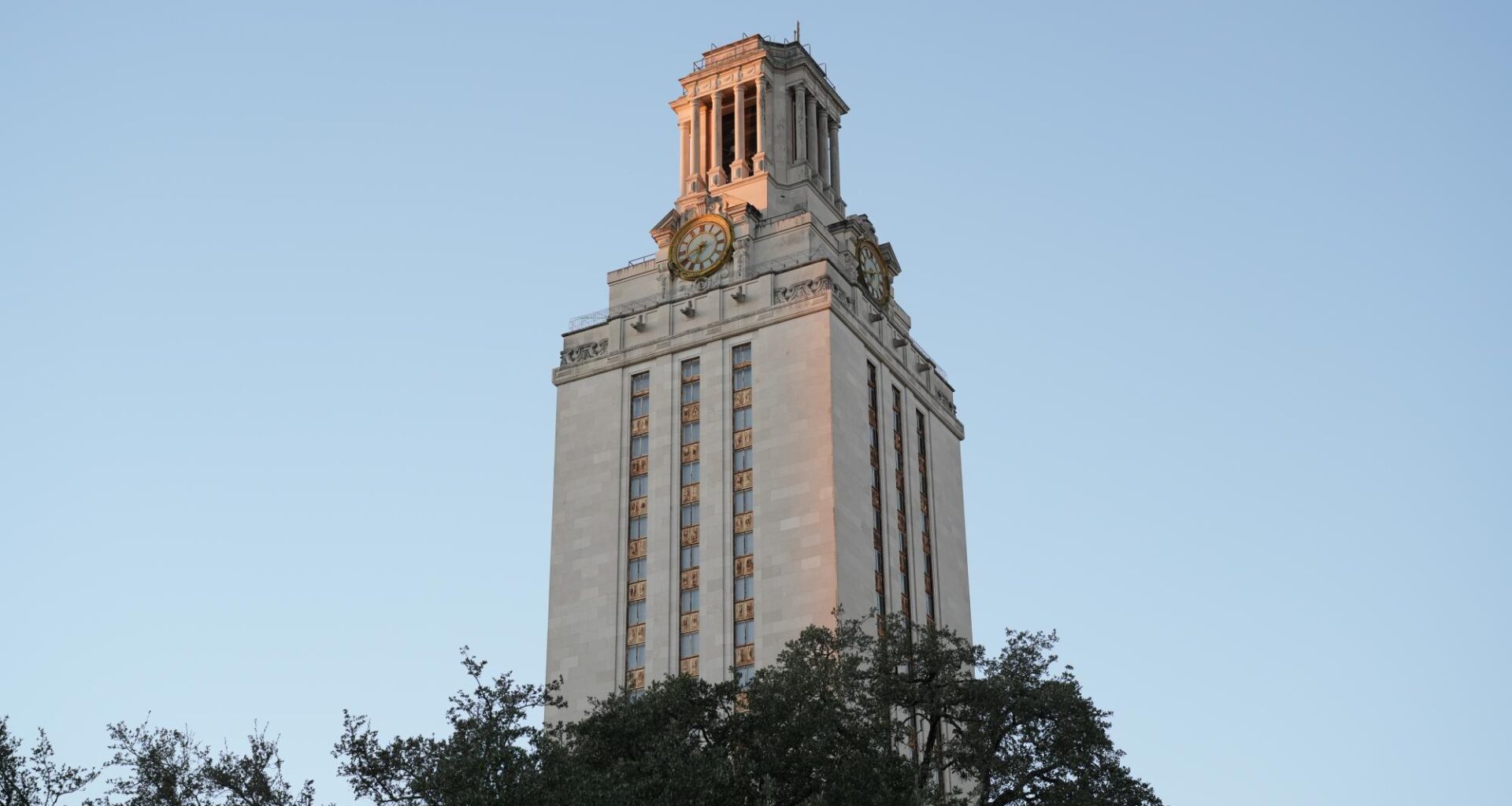Editor’s note: All faculty are speaking for themselves and not on behalf of the University of Texas at Austin. Some professors asked to remain anonymous in fear of retaliation.
Curran Nault no longer felt comfortable teaching at UT after spring 2025, so he left for the University of Nevada. For Nault, a queer studies professor, the writing on the wall had been there since late 2023, when Texas Senate Bill 17 went into effect and directed universities to close diversity, equity and inclusion offices. He was alarmed UT closed the Gender and Sexuality Center, a support service for LGBTQ+ students, in 2024 to comply with the law.
“The closing of the center for me, and for a lot of people, was a clear warning sign that UT was becoming an unwelcoming place for thinking critically about gender and sexuality,” Nault said.
After the closure, Nault worried his courses about gender and media would be the next to go. As Nault looked for a way out of the University, Texas Senate Bill 37 made its way in. The law, which went into effect Sept. 1, directs universities to increase oversight over curriculum and restructure their faculty councils.
“Although SB 37 wasn’t a thing yet when I was looking for new jobs, I could tell that things were trending toward less academic freedom, less student and faculty support,” Nault wrote.
While Nault has already left, more UT professors may follow suit. Of the 437 faculty who responded to a Daily Texan survey question, 60% have considered leaving UT over SB 37.
The Texan sent a survey to all faculty members listed on their school’s websites to gauge their thoughts on SB 37 and received 551 responses — 16% of all UT faculty not in the Dell Medical School, School of Law and the College of Pharmacy. The survey and its resulting data exclude those units because they only offer graduate degree programs, and the survey primarily focused on undergraduate schools.
The University declined to comment.
One humanities scholar said he has already applied to two other jobs with lower ranks and half his current salary. He said he does not want to move, but he feels the state legislature is making it unbearable to stay at UT.
“I can’t teach in an environment where I feel like my students are under attack,” he said.
To comply with SB 37, UT created a Core Curriculum Task Force on Oct. 16 to review the University’s core curriculum requirements. Although UT has not publicly announced any curriculum changes, he is worried he might lose his job, citing an April tweet from Lt. Gov. Dan Patrick that says “looney Marxist UT professors” should leave Texas.
The humanities scholar said one of his colleagues has already left the state over SB 37. He is one of 228 respondents who said they know someone who has already left UT, either because of the new law or other recent policy changes.
However, some faculty understand the state and University’s oversight. Ken Wiles, clinical professor of finance, said the state has some oversight rights because the University receives state funding.
Out of the McCombs School of Business faculty who answered the question, 43% strongly disagreed that they had considered leaving UT because of SB 37.
“Nobody here has a right to a job or a paycheck at the University of Texas,” Wiles said. “If you don’t want any sort of oversight, you can go do something else … It’s a two-way street, we have certain rights, but we have certain responsibilities that come with those rights.”
In contrast, 75% of College of Liberal Arts faculty who answered the question agreed they have considered leaving UT over the new law, with 58% strongly agreeing.
One liberal arts faculty member said they considered retiring early over UT’s implementation of SB 37. However, they decided to stay because they feel they should advocate for academic freedom. Because they are close to retirement, the professor said they are in a good position to do so.
“There’s not as big a risk for me as there is for junior faculty, especially pre-tenure faculty,” they said.
Some professors have never discussed politics in their classroom. Still, the effects of this shift in climate reach them. Jonathan Valvano, an electrical and computer engineering professor, said that although his department does not regularly teach political classes, he still senses fear among his colleagues in discussing political topics.
“I know we have 70 men and women faculty members who will push back on nonsense,” Valvano said. “UT is still a safe space because we’re not gonna back down and, if they want to fire all 70 of us, they’re gonna have to.”
Audience Research Analyst Aaron Coronado contributed to the reporting of this story, as well as the analysis and creation of charts.

